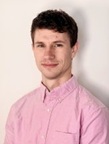Fellowship posts offer you the opportunity to expand you career outside of clinical medicine. Two of our former fellows have shared their experiences below.
Jonathan Sadler

Jonathan Sadler graduated in 2011 and went on to undertake core anaesthetic training. He enjoyed the teaching element of the job so applied for an education fellowship. He ran the 4th year mentorship programme, a careers day and was a link between BSMS and KMMS. As part of the fellowship, he studied for a PGCert in medical education for which he was awarded a distinction. Jonathan felt the fellowship “opened my eyes to teaching and collaboration and allowed me to flourish as an individual“.
Jonathan felt the key learning points from his fellowship were:
“Good teaching takes a lot of time. I observed and tried out many different areas before feeling confident enough with a style that I enjoyed.”
“Academic scholarship is also an area that cannot be rushed and I valued having an amount of time to read and absorb all the academic material I was immersed in.”
“I became more confident with what I didn’t know and how to approach this.”
You can read Jonathan’s publications from his fellowship here:
What is the impact of Apps in medical education? A study of CAPSULE, a case-based learning App
Climate change in healthcare: Exploring the potential role of inhaler prescribing
Geoffrey Wells
Geoffrey Wells graduated as an adult nurse in 2004 and went on to study medicine at St George’s, University of London. He applied for a fellowship to increase his involvement in medical education. The aim of his fellowship was threefold; to support medical education construction and delivery, to deliver teaching to multi-disciplinary teams and to develop Geoffrey’s own research interest of simulation in palliative medicine.
During his fellowship he also completed a PGCert in medical education, became a member of the Academy of Medical Educators, presented posters at national conferences and won teaching awards.
Geoffrey felt the key learning points of his fellowship were:
Development of confidence in delivering teaching to different groups, understanding teaching style and pedagogy”
“Further development and enhancement of organisational skills”
“Personal development of confidence overall, gaining a better understanding of personal value and competence in medicine, and teaching“
Geoffrey summed up the fellowship by saying “it gives you time to explore a different skill set in medicine. It provides you with time to pursue different educational interests and helps you shape your future career which is vital if you are to remain in this industry for 30 years”. He has subsequently completed an MD and is pursuing a career in medical education.
Are you a KSS fellow?
This is a new section of our website. If you are a current or former KSS fellow and would like to share your experiences, please get in touch by emailing KSSPGME.se@hee.nhs.net.